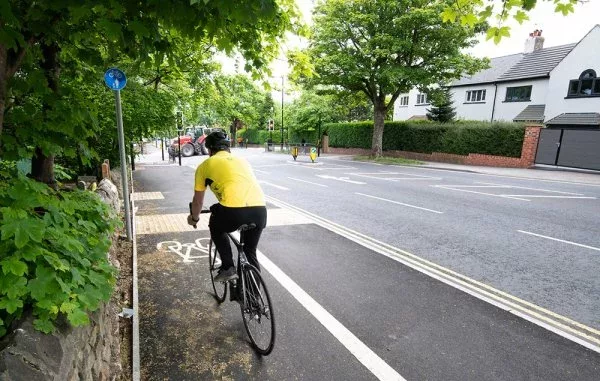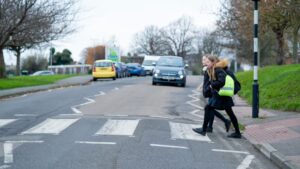Alternative schemes to promote sustainable travel on a key route in Harrogate are due to be drawn up after feedback from the public.
It is proposed that an alternative package of measures for Otley Road will be outlined and presented to the Harrogate and Knaresborough area constituency committee this summer.
This could include considering the introduction of speed reduction measures in surrounding streets from Otley Road, improved crossings for cyclists, better signage for cycle routes and making improvements to bus infrastructure, said North Yorkshire Council.
The proposed way forward follows public consultation on options for phase two of the Otley Road cycle way and permanent restrictions on Beech Grove and Lancaster Road.
Phase one of the Otley Road cycle way, which was completed in January last year, links Harrogate Grammar School, residential areas and Cardale Park. This was delivered first as it was always seen as a route that could work in isolation.
The proposed phase two would link Arthurs Avenue to the town centre, and phase three Harlow Moor Road to Cardale Park.
The experimental traffic restrictions on Beech Grove and Lancaster Road, which prevented non-residential through traffic, ran from April 2021 to August last year.
After listening to public concerns, it is proposed that construction of phase two of Otley Road cycle way is not advanced, and the Beech Grove restrictions are not made permanent.
Instead, it is proposed that the remaining funding of up to £500,000 in the National Productivity Investment Fund (NPIF) package is used for other measures to encourage active travel, support growth and address safety concerns along the Otley Road corridor.
The latest round of consultation took place in the final months of last year which included a meet the designer event, stakeholder consultation, walkthrough of the cycle route and led to written responses.
Although there was backing expressed for the aims of both schemes and the need to improve active travel in Harrogate for future growth, there was no clear support for any of the proposed options. Concerns were expressed about possible conflict between cyclists and pedestrians given an entirely segregated cycle way could not delivered due to constraints such as protected trees, The Stray’s land and carriageway width.
Detailed design work concluded that any reduction in the Otley Road corridor width to deliver a segregated cycle route could displace traffic and impact on the side roads in terms of speed and the volume of vehicles.
Executive member for highways and transportation, Cllr Keane Duncan, said: “Our proposal to consider an alternative package of sustainable transport measures demonstrates how we are listening to public feedback. Halting construction of phase two allows us the opportunity to prepare new measures with local input and support.
“The constraints of Otley Road meant it was always going to be difficult to meet government cycle infrastructure design standards without infringing on The Stray, widening the road or removing trees. We consulted on a number of options, but these were not fully compliant and attracted criticism. Cyclists have expressed concerns that the proposed cycle way would not encourage more cycling due to its design, while pedestrians said they were concerned about their safety.
“Given the concerns, it is right that we think again and explore alternative measures to promote walking, cycling and use of public transport. We plan to draw up options in partnership with local councillors via the area constituency committee.”
The results of the consultation and proposed next steps will be considered at a meeting of our business and environmental services corporate director and executive member this Friday (10 February).























